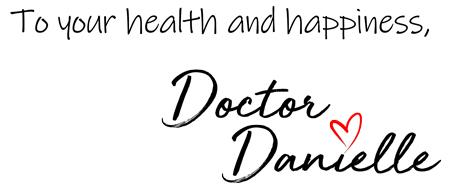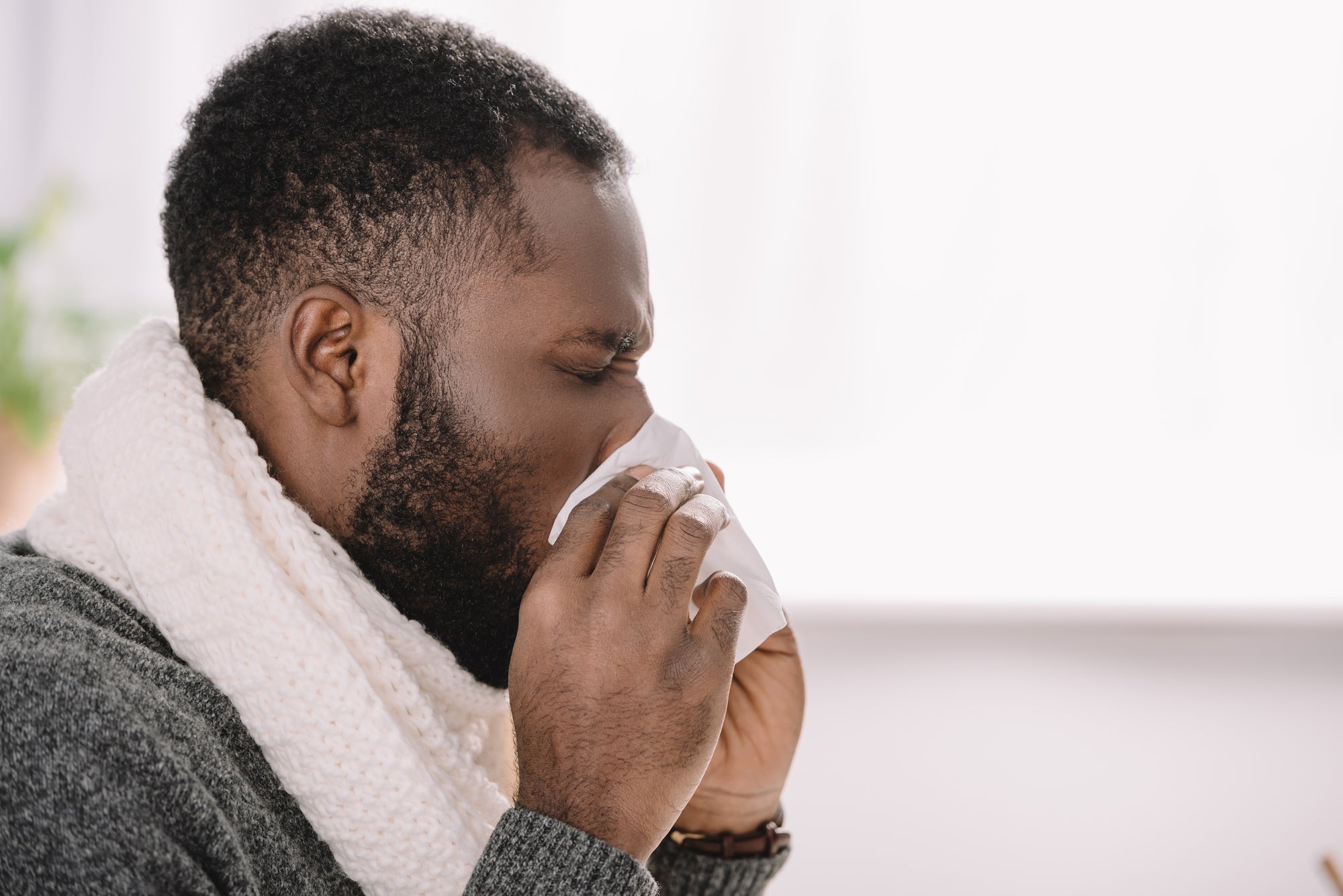Yes, you can get a cold sore in your nose. A cold sore anywhere is an unpleasant experience but when it occurs in your nose, it is especially nasty. When you get one, you want nothing more than to get rid of it as soon as possible. In this article, we’ll find out what causes cold sores in the nose, how to differentiate a cold sore from herpes and, most importantly, what you can do to get rid of cold sores.
Causes of Nose Cold Sores

Cold sores are also known as fever blisters. This common infection shows itself as tiny blisters that usually occur around the mouth. Once the blister breaks, a scab will remain for up to three weeks before disappearing.
Cold sores are caused by the herpes virus. Once you have the virus, you become susceptible to lifelong infection. The infection may remain dormant for a long time before the appearance of cold sores.
Cold sores in the nose are also associated the with cold and flu. Repeated nose blowing to remove phlegm build up, along with congested lungs can lead to cold sores in the nose. It has also been observed that dry weather appears to create conditions susceptible to nose cold sores as the lining of the nasal passage dries up.
A number of triggers have been associated with the development of cold sores. These include stress, allergies to certain foods, hormonal fluctuations, over exposure to the sun and reduced immunity.
How to Differentiate a Cold Sore from Herpes

Cold sores are a form of herpes. This can be uncomfortable for people to process because there is a general misunderstanding of what causes herpes. There are, in fact, two types of herpes:
- HSV-1 (Herpes simplex virus 1)
- HSV-2 (Herpes simplex virus 2)
HSV-1 is also known as oral herpes. It affects approximately 90% of the world population under the age of 50. HSV-2, or genital herpes, affects approximately one in six people around the world. HSV-1 is transmitted between people by way of oral to oral contact and can result in cold sores around the mouth.
HSV-2 herpes is transmitted by genital to genital contact. It can result in a cluster of tiny blisters around the genitals. HSV-2 herpes is more painful and may result in flu-like symptoms and nausea.

Signs & Symptoms of Cold Sores

Cold sores will typically pass through four distinct phases over their lifespan:
- Itching - this will occur for a day or two before there is any visible sign of the cold sore.
- Tiny blisters break out around the edges of the lips or within the nasal lining.
- After a number of days, the blisters break to release their fluid.
- An open sore results that will eventually crust over and disappear
This process usually happens over a 7-10 day period.
Critical Cold Sore Stages You Need to Know

The first sign that a cold sore may be on its way is a tingling sensation that may be accompanied by itchiness. If you can detect an onset and start treatment before blisters appear, you have a much better chance of reducing the severity and length of the cold sore.
Within 24-48 hours of first noticing the tingling, you will develop a fluid filled blister. The area surrounding the blister will be red. This will usually remain for 48-72 hours, after which the blister will break.
The blister will now transform itself into an open red sore. After a few days, the sore will take on a browny/yellow tinge and begin to crust over.
The final stage will see the sore healing itself, with the crusty covering flaking off. In the vast majority of cases, there will be no scar.
Foods That Can Trigger Cold Sores

Many people believe that certain foods are triggers for the outbreak of cold sores. There are studies that foods high in the semi-essential amino acid, arginine, may contribute to cold sore outbreaks. Here are half a dozen high arginine foods that you may want to cut back on:
- Turkey
- Pork loin
- Chicken
- Pumpkin seeds
- Soybeans
- Peanuts
You can reduce the severity of cold sore pain by avoiding foods that are spicy and/or acidic.
There is more evidence to show that certain foods may boost your body’s ability to ward off cold sores. One study showed that the essential amino acid lysine may be able to help reduce cold sores due to its ability to suppress arginine production in the body. High lysine foods include cheese, cod, sardines, fenugreek seeds and can also be found in some dietary supplements.
Cold Sore Treatments

There is no way to completely get rid of cold sores. However, certain treatments have been shown to reduce the lifespan of a cold sore.
Cold Sore Laser Treatment
Laser treatment for cold sores have been shown to cut the lifespan of the sore in half. However, for laser treatment to be effective, you need to get onto it early. As soon as you start feeling a tingling sensation around the lips, you should contact your laser dentist. He will apply a soft tissue laser which will severely impact the progression of the cold sore. You will still get a sore but it will not be as pronounced and will only last a few days.
Over the Counter (OTC) & Prescription Cold Sore Medicine
Over the counter medications can reduce the pain associated with cold sores and lessen the cracking and scabbing that occurs in the later stages of the lifespan of a cold sore. Over the counter medications that contain menthol and phenol are often the most widely.
One of the most popular over the counter medications to treat cold sores is Abreva. It should be applied as soon as you feel a tingling sensation. Make sure that your hands are washed before application. Continue to apply every 4 hours. Do not apply Abreva inside your nose.
Your doctor may prescribe medication if your cold sore is especially painful or you have frequent occurrences. This may be in the form of an analgesic gel or an antiviral oral medication. Three common oral medications are:
- Zovirax
- Famvir
- Valtrex
Once again, for best results, you should begin treatment as soon as possible. If you do not start taking the treatment within 48 hours of the outbreak of the cold sore, you will not see much benefit from taking the medication.
Homeopathic Cold Sore Remedies

Homeopathic remedies for cold sores are largely designed to provide an immune system boost in order to speed up the healing process. Here are three of the most popular natural cold sore treatments:
Lemon Balm
Studies indicate that lemon balm's antiviral properties can help reduce the redness and swelling associated with cold sores and even protect against future infections . A 2012 study even found that lemon balm could kill the HSV in some cases and affect how the virus attaches to host cells! Thus, highlighting lemon balm's usefulness as homeopathy for cold sores. So, to speed healing, you can apply a cream, ointment, or even lip balm containing lemon balm to your nose cold sores several times a day. Continue doing so until your sores have healed.
Homeopathic Natrum Muriaticum
Natrum Muriaticum is a natural treatment that is built around table salt. It works by encouraging the body to create more blood cells and albumin. To make this treatment, dissolve sodium chloride in boiling water. The solution should then be filtered and crystalized before being dissolved in water and succussed.
Homeopathic Poison Ivy
Poison ivy has been shown to be beneficial in cold sore treatment due to its ability to promote early crusting over of the cold sore. This prevents extra blistering and shortens the lifespan of the cold sore. The clinical name for poison ivy is Rhus toxicodendron. It can be obtained in capsule, gel and liquid forms as an over the counter treatment. Do not apply the poison ivy plant directly to your skin.
How to Prevent Cold Sores

If you have the herpes simplex virus, there is a likelihood that you will suffer from cold sores at some stage. However, there are practical precautions you can take to lessen the chances. These include washing your hands regularly. If you touch a cold sore or any type of open sore, you should immediately wash your hands.
Avoid rubbing your eyes. If you do have a cold sore, you must never rub an eye after touching the cold sore. This could lead to ocular herpes, which can be very serious.
You should also replace your toothbrush regularly. In addition, avoid kissing a person who has a cold sore. Neither should you use that person’s grooming equipment, such as a razor, toothbrush or flannel. You can also reduce your chances of getting a cold sore by applying sunscreen if you are planning to be out in the sun for an extended period of time.
Another common sense precaution is to avoid sharing food and liquids with other people. HSV-1 may exist in saliva, so not sharing things that go into another person’s mouth will lessen transfer potential.
Reducing your stress levels by practicing mindfulness and getting regular exercise will also help you to reduce your cold sore risk factors.

Be sure to check out Dr. Danielle's Cold Sore Assist:









7 comments
Thank you for your information it was very helpful. I rarely get cold sore. I knew I had something inside my nose and when I tried to dry the inside of my nose I noticed that there were a bunch of small clear and blood little spots like the herpe hvs2 out breaks I have seen on other people and it really concerned me. So I got on Google and found your information there. Thank you for that it helped ease my aniexty. I never dreamed yo could get herpes inside ones nose.